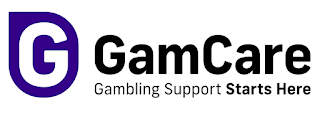Gambling is very easy to access these days with our phones and multiple options to get involved. This can mean that we spend more of our time and money than we want to or mean to, and it is easy to experience the negative impacts of too much gambling.
GamCare is the leading provider of information, advice and support for anyone affected by gambling harms, and receives over 44,000 calls to the helpline and live chat each year to support people to change their relationship with gambling. There are a range of ways you can be supported - in person, over the phone, or virtually. If you're unsure if your own or someone else's gambling is becoming harmful, we've put together some useful signs to think about.
GamCare hears from people who have become isolated and lonely as a result of their gambling, and who haven’t spoken to anyone else about what they are going through.
We support anyone who has an issue with their gambling or someone else’s. We're available 24/7, we operate the free National Gambling Helpline, and provide treatment in all regions across England, Scotland, and Wales.
Our trained advisers will help you find the right kind of support – whether it’s free tools to block gambling sites; forums and groups where you can get support from people in the same situation; or free confidential treatment in your area or residential treatment. Negative impacts on mental health are very common – people experience anxiety, depression and stress, and the effects on their loved ones can be just as bad. But there is hope and we help thousands of people to overcome gambling harms every year.
Would you know how to spot if your own or someone else's gambling is causing harm?
Becoming so focused on gambling can increase the isolation people feel and it can also make it harder to ask for help.
Gambling is also known as the ‘hidden addiction’, and often the signs are not clear. From experience, we understand that these are the most common ways to identify if your own or someone else’s gambling has become harmful.
Five signs to consider about your own gambling:
- Preoccupation – Do you spend much of your day thinking about betting? Are you finding it distracting you whilst at work, or taking you out of the moment when you spend time with friends and family? Often thinking about or planning to gamble can be one of the early warning signs that gambling could be harmful.
- Withdrawal – Removing yourself from social and professional situations so that you can place a bet is another warning signal that your gambling might be going too far, and that the urges to gamble are potentially harming other areas of your life.
- Escape – Life can be overwhelming at times, and you might feel like you want to escape it for a while. Using gambling as a coping mechanism is a sign of harmful gambling and can lead to losing significant amounts of money.
- Chasing losses – The main motive of gambling is to win money but during a gambling session, that motive can change. Chasing losses is where your motive from winning money changes to winning back the money you have already lost. This can be dangerous and lead to significant losses.
- Lying – If you find yourself hiding how much you are spending or lying about the amount of time you are gambling, or perhaps asking for money to cover bills that you are spending. These are just some signs that gambling is harming your life, and possibly risking your relationships with family and friends.
How to stop a gambling issue from escalating
Stopping an issue around gambling can be difficult if it has become a key part of your life. However, a mix of practical activities or hobbies to occupy your time along with taking positive action with the following steps can help:
- Talk to a friend or a family member – talking to someone you trust is often the best place to start if you feel your gambling is going too far. Even if they may not be able to help immediately, sharing any concerns you have can be an important first step to stop your gambling from escalating.
- Talk to a trained adviser at GamCare – if you don’t feel comfortable talking to someone you know, then talking to someone you don’t know can also help. Call the National Gambling Helpline for free on 0808 8020 133 where you can speak to an adviser for non-judgmental advice and support: gamcare.org.uk
- Restrict access to gambling websites – using practical tools can also help. Gamban is a software provider that blocks access to gambling websites, and you can also self-exclude from gambling websites through GAMSTOP for free. Gamban is available for free when calling the National Gambling Helpline through the TalkBanStop partnership (talkbanstop.com).
- Put banking blocks on your card – Many retail banks now offer the ability to block transactions to gambling companies. This can be an important extra layer of protection when trying to cut down or restrict your gambling. Find out more about this tool via gamcare.org.uk/banks
